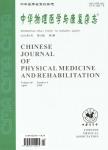Cilostazol for Alzheimer′s disease
出 版 物:《中华物理医学与康复杂志》 (Chinese Journal of Physical Medicine and Rehabilitation)
年 卷 期:2017年第4期
页 面:263-263页
核心收录:
学科分类:1002[医学-临床医学] 100205[医学-精神病与精神卫生学] 10[医学]
摘 要:BACKGROUND AND OBJECTIVE More than 35 million people worldwide suffer from Alzheimer′s disease (AD). No cure currently exists for this disorder. While acetylcholinesterase inhibitors (AChEIs) are frequently prescribed, the benefit is often minor. Cilostazol is a selective inhibitor of cyclic nucleotide phosphodiesterase 3 (PDE3), with multiple activities in the brain including anti-inflammatory, antioxidative, and antiapoptotic. This study examined the therapeutic response of this medication as an add-on in patients with stable *** Subjects were 30 patients with stable AD, all receiving Cilostazol 50 mg twice per day as an add-on therapy with AChEIs. Each subject was matched with one patient with stable AD receiving only AChEIs for at least 12 months. The participants were tested at baseline and every six months thereafter with various neuropsychological assessments, including the Mini-Mental State Examination, the Cognitive Assessment Screening Instrument (CASI) Neuropsychiatric Inventory and Clinical Dementia Rating Sum of Boxes (CDR-SB). In addition, all patients underwent ApoE *** For the primary outcome measure of change in the Mini-Mental State Examination, a favorable response was noted in 50% of those in the Cilostazol group. A logistic regression analysis demonstrated that Cilostazol use was significantly associated with change in MMSE (P=0.024).CONCLUSION This study of patients with stable Alzheimer′s disease taking an acetylcholinesterase inhibitor found that an antiplatelet drug, Cilostazol may reduce the odds of deterioration of cognitive function.



